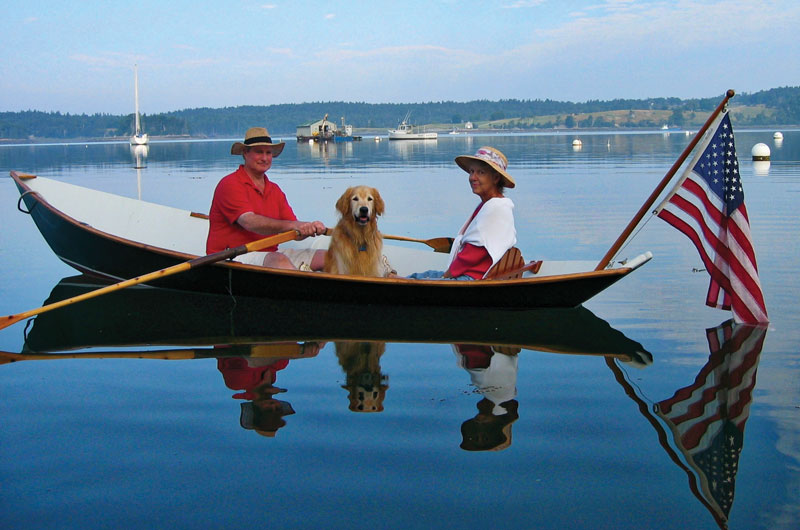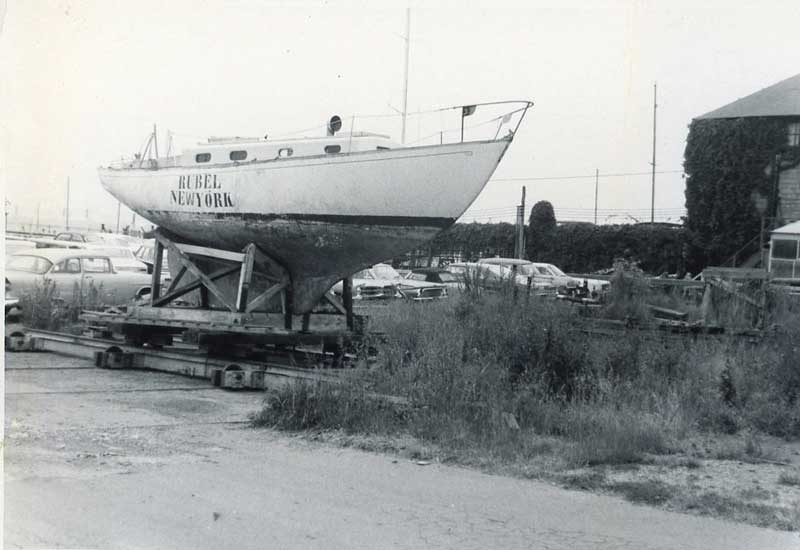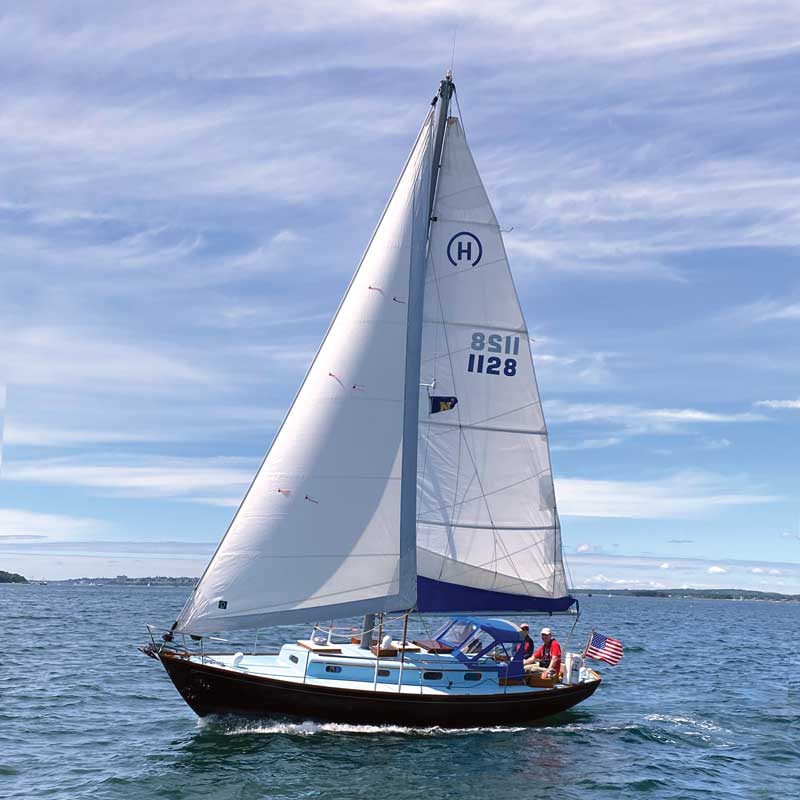Letters — Issue 186
 Allan Vaughan and crew in their Gloucester Light Dory.
Allan Vaughan and crew in their Gloucester Light Dory.
A dory devotee applauds
Having built and then rowed almost every summer morning for more than 40 years a Gloucester Light Dory (Cover shot, November/December 2023), I can emphatically state that Phil Bolger is in Heaven. As an aside, no matter how well done, applying bumper guards detracts from the beautiful lines Bolger drew.
Allan Vaughan
Pretty Marsh, ME
Ded vs. Dead, debated
I just received your latest issue of Maine Boats, Homes & Harbors and, as usual, I found it to be interesting, informative, and entertaining. However, I must take exception to Peter Spectre’s comments in his piece, “On Navigation,” (November/December 2023), in which he quotes Bowditch as saying, “Dead reckoning...is reckoning relative to something stationary or ‘dead’ in the water.” While this is excellent advice, I’m not sure where Mr. Spectre found this quote, as I believe it to be inaccurate. Though widely used today, the correct expression is not “dead” reckoning. The proper term is “ded” reckoning, and it stems from log entries dating back to the 19th century, where mariners noted in their logs that the calculations of their position were derived from “deduced reckoning.” This was later abbreviated to “ded. Reckoning” and finally to “ded reckoning.” The phrase “dead reckoning,” so often used today (even in Google and Merriam-Webster) is, therefore, a misnomer.
Joel P. Gleason, via email
Editor’s Note:
Asked to comment, the article’s author noted simply, “He is correct.”
Down the Allagash, vicariously
I just picked up an edition of MBH&H and was especially interested in the article on the Allagash (“Allagash Adventure,” by Carl Little, May/June 2023). My uncle, Mel Cote, was there for the founding of College of the Atlantic and led the school’s Allagash trip many times. He died of Alzheimer’s two years ago and I will always regret not getting on the river with him. It was enjoyable to share this group’s trip. What a great edition!
Lauren Prior, via email
 The 1963 Hinckley Sou’wester Shiloh, then named Princess, was returned to New York on a cradle (above) aboard a Portuguese freighter after being stolen and sailed transatlantic. Today, Shiloh’s home port is in Falmouth.
The 1963 Hinckley Sou’wester Shiloh, then named Princess, was returned to New York on a cradle (above) aboard a Portuguese freighter after being stolen and sailed transatlantic. Today, Shiloh’s home port is in Falmouth.

A most unexpected transatlantic voyage
I am a relatively new subscriber to MBH&H, but I have a story that seemed the kind that your readers might find interesting. My wife and I purchased a 1963 30' Hinckley Sou’wester in 2019. It came with an interesting story from 1965 when she was in Long Island and stocked for a weekend outing. A Swedish deckhand, with one leg, from a visiting freighter in New York harbor, decided that he was done with that job, stole the sailboat and pointed her bow and compass east. She made it all the way across the Atlantic to the Azores, being met twice by passing ships when the thief was offered water and cigarettes. Upon arrival at the Azores he tried to get to Sweden by selling off what he could from the sailboat—and eventually the sailboat itself—which caught the attention of the harbor master who informed Interpol. The thief was caught and the boat returned to the United States. The story made the New York Times. We live in Yarmouth and moor her at Handy Boat in Falmouth.
Chris Waaler, via email
✮
















